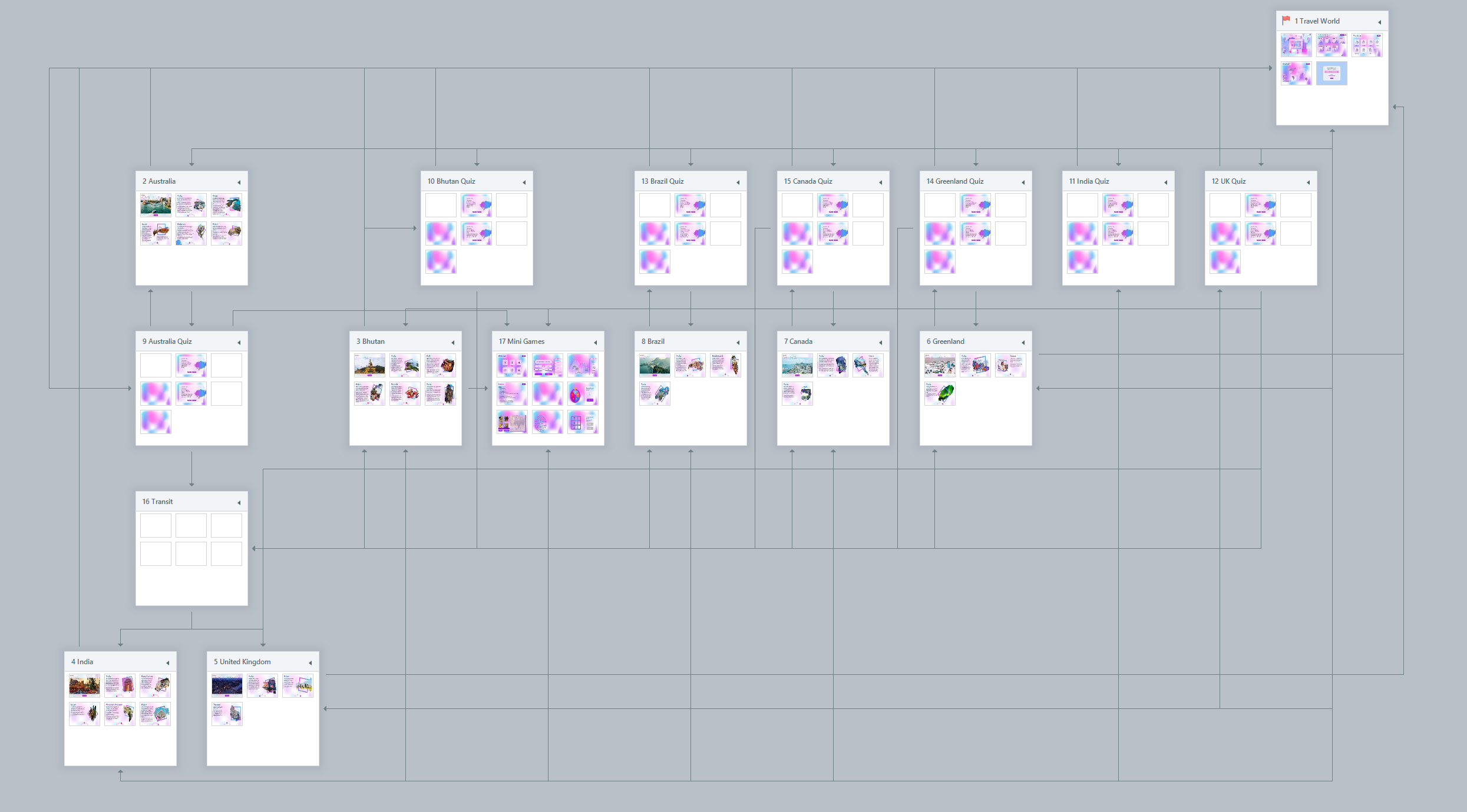




The purpose of this case study is to highlight the self-exploration journey of designing and developing a game-like course titled "Around the World in 30 Minutes" using Articulate Storyline 360. The course aimed to provide an engaging and interactive experience for learners to explore different countries and cultures. The structure involved visiting each country, accessing country-specific information, completing quizzes, unlocking mini-games, and earning visas to travel to the next destination.

The course was divided into several modules, each representing a different country. It lets learners to start their journey in one country and progressed to the next after successfully completing a quiz. The content for each country included key information, cultural insights, landmarks, and interesting facts. The gamification elements, such as unlocking mini-games and earning visas, added a sense of achievement and motivation to the learning experience.

Articulate Storyline 360 provided a robust authoring environment, allowing for the implementation of advanced triggers, variables, and JavaScript to enhance the interactivity and functionality of the course.
To ensure a seamless learning experience, a comprehensive information architecture was implemented. Each country module had a consistent layout, making it easy for learners to navigate and access the required information. Clear navigation buttons, progress indicators, and interactive elements were strategically placed to guide learners through the course. The course's overall design and layout were optimized for both desktop and mobile devices to accommodate different learning preferences.


By employing complex logic within Articulate Storyline 360, the course "Around the World in 30 Minutes" achieved a seamless and user-friendly experience while maintaining a focus on the main concepts. The use of complex logic allowed for the implementation of features that enhanced the learning journey:
By incorporating complex logic into the course design,
"Around the World in 30 Minutes" achieved an easy and seamless user
experience. Learners were able to navigate through the content intuitively, receive
personalised feedback and guidance, and explore additional challenges based on their
individual progress and preferences.
Overall, the self-exploration
journey on Articulate Storyline 360 showcased the successful integration of complex
logic with in-depth information architecture, engaging visuals, and game-like
elements. This resulted in a highly interactive and immersive learning experience
that captivated learners while ensuring a solid understanding of the main concepts.